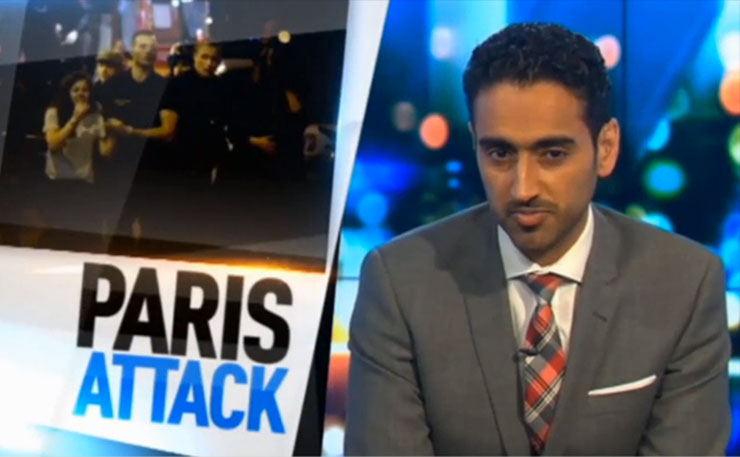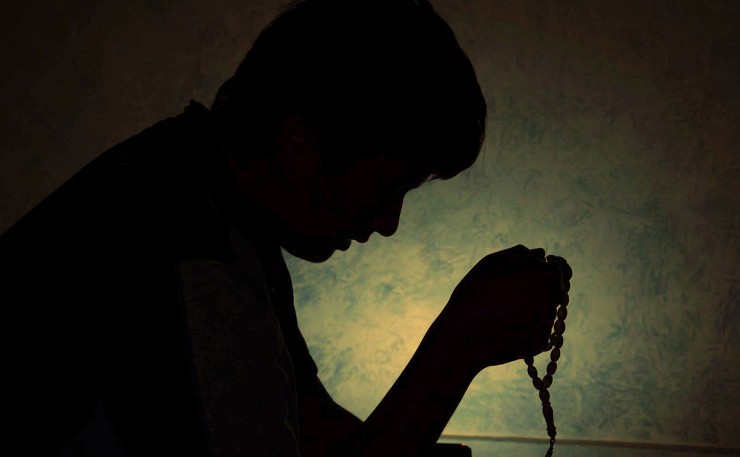If you’re a Muslim in Australia and you want to be heard, there are some things you must never say, writes Randa Abdel-Fattah.
Judging by the hate campaign against the Australian Grand Mufti, Australia’s Grand Mufti, Dr Ibrahim Abu Mohammed, one might ask, was it not the time and place for him to call for us to address the causative factors of terrorism?
Okay, I will humour this argument, but I ask: when is it time, and what is the (public) place?
At no time or public place has an Australian Muslim been able to contextualise (not justify) ISIS without being bullied, attacked and censured.
Simply put, there is no time or place for Australian Muslims to speak about causation.
To condemn involves the heart. This is the demand made of Muslims. Prove to us you have a heart. Reassure us and soothe our anxieties.
But to call out the causes of a crime involves analysis, historicising of events. It is a matter for the intellect, the head.
If we are not allowed to use our heads when responding to the crisis of ISIS and terrorism, then we are symbolically being beheaded as a community.
And I don’t say that to be facile.
Because honestly I can think of no example where a Muslim is able to intervene in an intellectual and thoughtful way into this debate without the vitriolic backlash and public axe swiftly cutting them down.
Waleed Aly, whom I admire and respect deeply, earned the support of hundreds of thousands of people with his powerful and admirable statement on Monday. But would he have received that support if he had added that we can also stop ISIS if we, say, stop supporting the Middle Eastern dictators and regimes that fund them? Or stop foreign policies and funding proxy wars that help ISIS?

If he had said what white male commentators get away with saying without a whisper of objection?
Of course not.
The overwhelming response he received gives us real pause for thought as to what and who strikes a chord with the Australian public in these matters.
I wonder if Waleed would have been symbolically beheaded if he had extended his plea with a call to address root causes.
Perhaps it wasn’t the platform, time or place. But the only way this can be proven is if we see evidence that Muslims can demand that these causes be part of the public conversation without attracting such a backlash.
There is simply no evidence that we can.
Ultimately what Australia wants is a public discourse on terrorism in which Muslims can intervene only if it addresses matters of the heart.
Just give us your grief and emotion but repress your powers of historical and thick political analysis.
In fact, watching the news here in New York this week, I would extend this to America’s demands on Muslim commentators too.
This is saddening and frightening. I don’t say this as an indictment on Waleed because he is in the belly of the beast, and has the art and skill to fight from inside, poking enough to evoke discomfort and reflection, without causing indigestion and being vomited right out.
It is an indictment on our publics and their readiness to play intellectual executioners.
It is heart-breaking and head-breaking to see this barbarity unfold and have to deal with a political leadership across the Western world, in bed with a corrupt leadership across the Middle East, that refuses to own up to the work that really needs to be done to stop ISIS.
Donate To New Matilda
New Matilda is a small, independent media outlet. We survive through reader contributions, and never losing a lawsuit. If you got something from this article, giving something back helps us to continue speaking truth to power. Every little bit counts.





